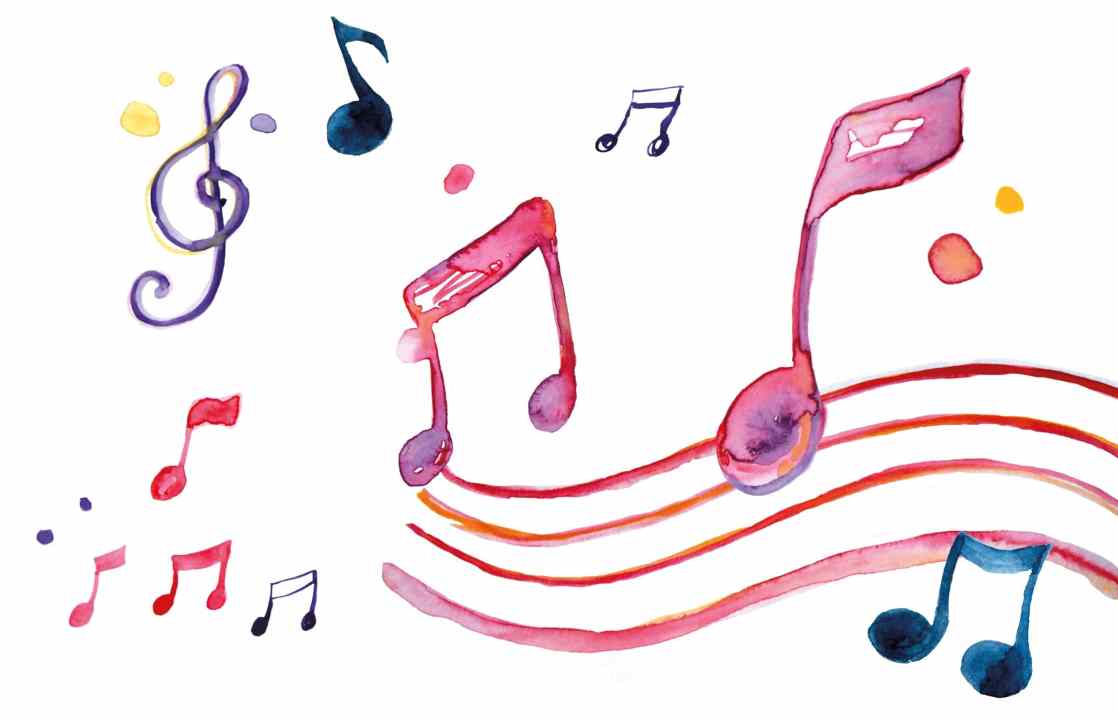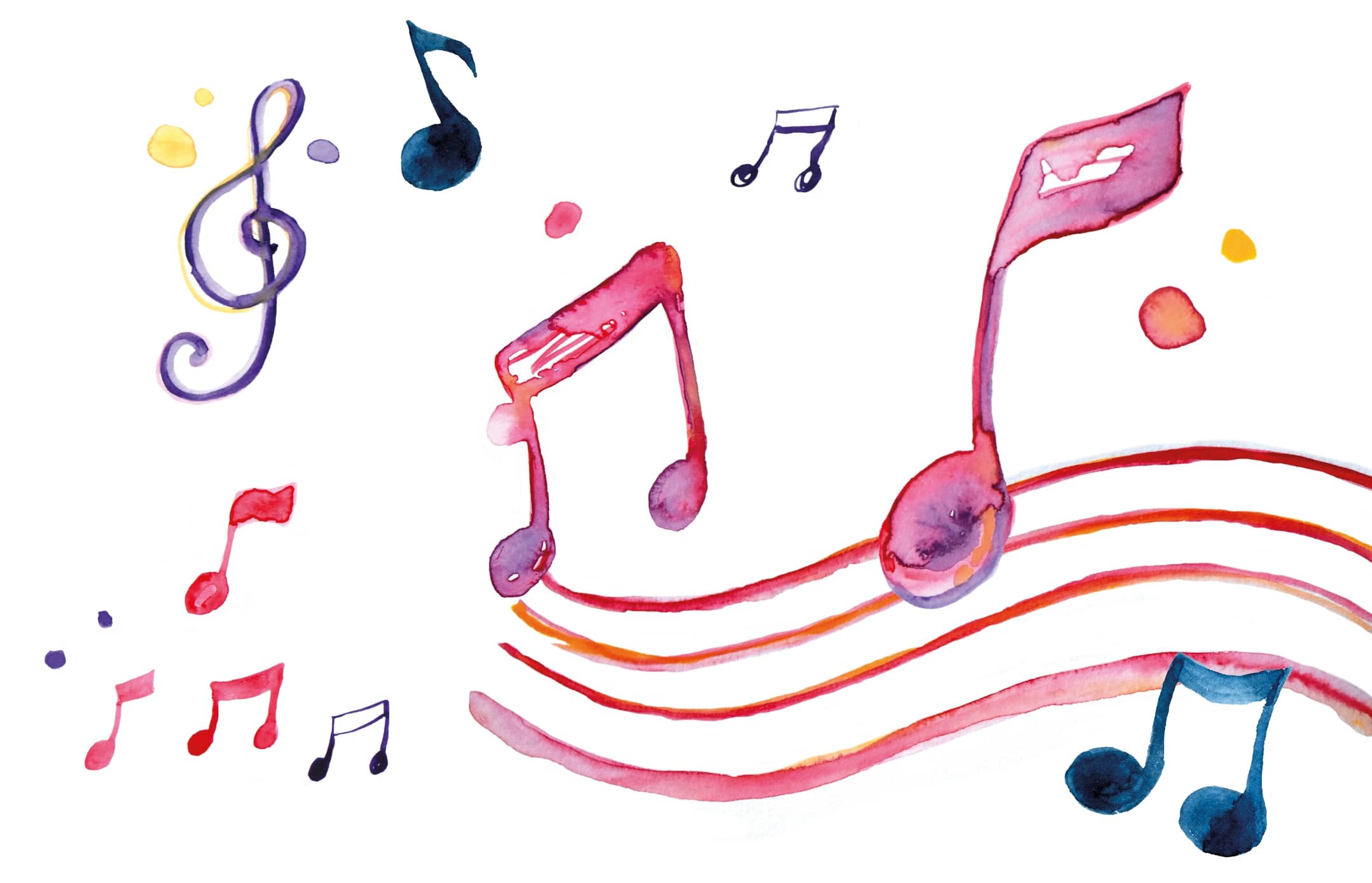Music is far older than language. The FOXP2 gene associated with speech has been recovered from Neanderthal fossils, yet rhythm and melody have been around for millions of years before that, as attested by the fossils of chirping crickets and singing birds. Sapiens evolved on the ape line, and our songs evolved from the vocalisations of non-human primates. One of the traits, however, which sets us apart from our chimp cousins (with whom we share 98 per cent of our genetic material) is that we continue to learn, develop and mature far beyond infancy.
Humans may well be born with a musical instinct, yet music training changes the structure of our brains. A baby, as well as an adult with no musical training, processes music through the right side of the brain, which deals with emotion. If you are taught to sing or to play a musical instrument, your brain starts to process music through its left hemisphere, associated with language. In short, trained musicians are left-brained. (One explanation is they have learned to hear music more like language, discerning a level of structural complexity beyond the grasp of lay listeners.) Professional musicians also have more grey matter in the motor, auditory and visual-spatial brain regions than amateurs. So music education actively changes us.
Children who are learning to play an instrument can remember 20 per cent more words in a list
In 2015, Professor Susan Hallam, the doyenne of music education in Britain, built up a compelling mountain of evidence on how music benefits children, from babies to teenagers. According to Hallam, lullabies improve feeding behaviours and sucking patterns in premature babies. They regulate heart and breathing rates, soothe babies before sleep times and foster language and social development. In primary school, learning to sing or play under the guidance of a professional music teacher has been shown to accelerate reading comprehension by eight months. Music helps young children decode verbal symbols because music is intrinsically built of patterns. Rhythmic training in particular, as in playing percussion instruments, helps children with dyslexia to separate syllables. Children who are learning to play an instrument can remember 20 per cent more words in a list, and are better at recalling terms in a different order than that presented to them. Music training sharpens visual and spatial reasoning, as in remembering and reproducing geometrical shapes and line drawings. Musical training increases a child’s intelligence. This is an extraordinary claim to make because it prompts the question of causality. Couldn’t it be countered that cleverer children (often with higher socio-economic status) are simply more drawn to music? Not so. When children’s IQ was tested before musical instruction kicked in, a year of training increased their IQ by seven points. Whereas an increase in IQ was apparent after only two weeks, it transpired that the longer the training, the greater the effect.
Why does making music make you cleverer? Because it enhances working memory and ‘executive action’, i.e., the conscious control of actions, thoughts and emotions, planning and focus, as well as cognitive flexibility, adapting to challenges. This is why, as a music professor engaged with issues of graduate employability, I can report that business leaders sometimes prefer music graduates to students with a degree from a management school. They are more adaptable and creative. All this happens in the prefrontal cortex, which some theorists hold is the seat of intelligence.
There is much more to a person than IQ, of course. There are social skills, and playing together in an ensemble or an orchestra teaches group thinking, bonding, and the power of collective action. Conversely, practising an instrument alone teaches a child the transferable skills of planning, motivation, independence and self-discipline. And there is emotional intelligence. A child who can identify the emotions in a piano piece is better at understanding them in an imaginary scenario. Music makes you more sensitive.
What is to be done? Hallam’s recommendations are that musical training must begin early and be sustained, not sporadic. It must include group playing and performance. Expert professional teaching is vital, and it should range across singing, instrumental performance, composition and improvisation. It must include music notation and involve music genres to which the children can relate. Most importantly of all, head teachers must have the resources to fund this. It is sad but perhaps unsurprising that take-up of music in independent schools is higher than in state schools.
Music education is in an increasingly precarious position, especially in state schools, and the subject is often sidelined in favour of the allegedly more vocational or lucrative subjects permitted by the EBacc system (English, maths, science, geography, history and foreign languages). The rate of decline is rapid. In the past six years the number of people studying A-level music dropped from 7,355 in 2014 to 5,030 in 2020. A recent report by the Department for Education found that many young people interested in music felt pressured to choose other subjects at GCSE or A-level. Others simply didn’t have the option. Judged purely in pecuniary terms, the music industry contributes £4.4 billion annually to the UK economy. But there is more at stake if music education disappears. The music can’t be allowed to stop.







Comments